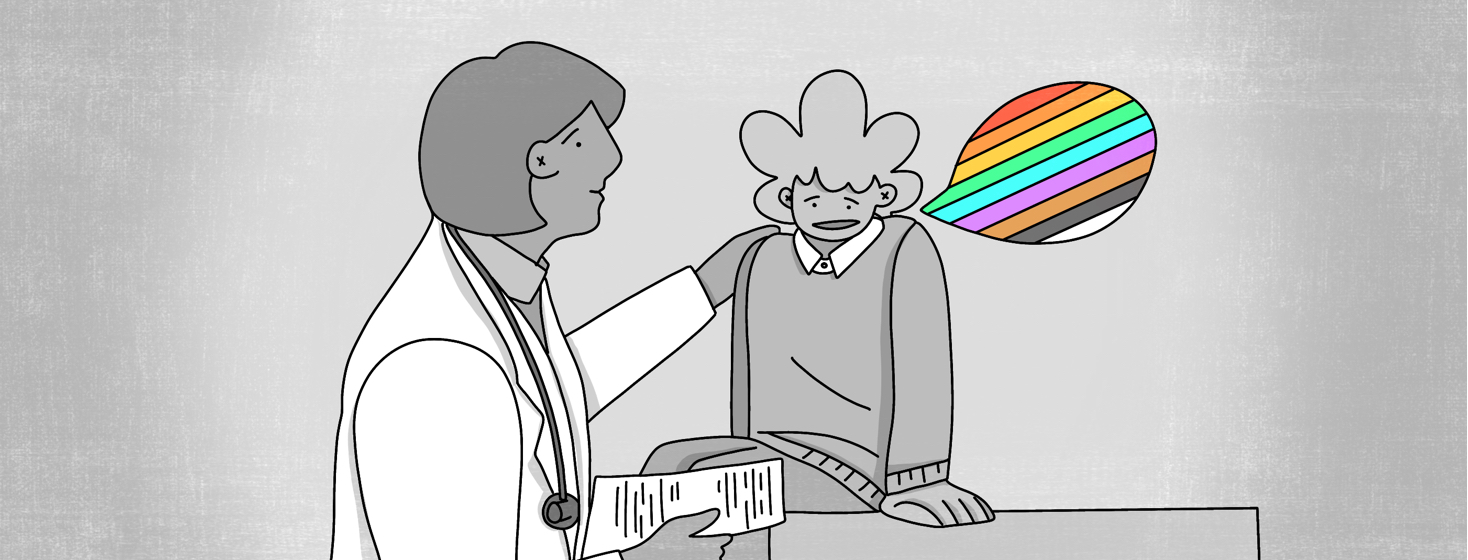Coming Out at the Doctor's Office
I have seen countless physicians in four different states in the U.S. and my experience with heteronormativity is generally the same. Often, the idea that a patient may be part of the LGBTQ+ community seems to not be at the forefront of physician’s minds. Or at least that’s the impression I get when asked a series of questions that were clearly intended for hetero individuals.
Awkward conversations with doctors
Some conversations with doctors can be awkward for various reasons. For LGBTQ+ individuals, conversations can become uncomfortable for reasons related to sexuality and gender identity. Deciding whether or not to disclose sexuality and/or gender identity to a doctor is a personal decision, and that decision can be a difficult one.

Some individuals are far more comfortable talking about their sexuality or gender identity than others. But whether you’re comfortable or not, disclosing this information can feel like "coming out" all over again. And if you’re like me, moving around often and therefore changing doctors frequently, you’re faced with "coming out" over and over and over again.
There are certainly pros and cons to "coming out" at the doctor’s office. In my opinion, unless you feel at risk of being discriminated against, it’s important to disclose this information so that you get the appropriate healthcare to meet your needs.
My experience with heteronormativity
With that said, sometimes I get caught off-guard at a specialist’s office and am faced with coming out when I did not intend to or think it was need-to-know information. This happens most often when I am asked questions about being pregnant.
For example, I received care at a rheumatology clinic for several years in New Mexico and rarely saw the same physician twice. One visit I was discussing changing one of my medications from hydroxychloroquine to methotrexate. The rheumatologist was very concerned about placing me on methotrexate because of the potential dangers of pregnancy while on it. It was one of the more awkward conversations I’ve had at a doctor’s office, having to explain to him that I have no intention of getting pregnant now or anytime in the future and that there’s virtually no way for me to accidentally become pregnant.
I know that some LGBTQ+ individuals are faced with more difficult conversations with physicians than I experience. Most of my experiences with heteronormativity revolves around the potential of pregnancy. More recently, a nurse asked me to sign a disclosure form regarding the potential hazards of a procedure to a pregnant woman after a previous nurse had decided I did not need to sign the form. While this incident was only a minor inconvenience, it demonstrates how healthcare processes and procedures are often heteronormative in nature.
Improvement in education and scientific research
One article I recently stumbled across attests that “In the United States, during preclinical years, medical students spend a median of only 5 hours discussing LGBT issues with regard to health care."1 When considering that fact from 2015, it’s hard to expect physicians to be well-versed in LGBTQ+ specific health needs and concerns. LGBTQ+ representation in studies and scientific research falls along the same lines.
I’m a firm believer that the way to change heteronormative bias in the healthcare industry is through improvements to education and greater awareness. We need more awareness and less bias.

Join the conversation